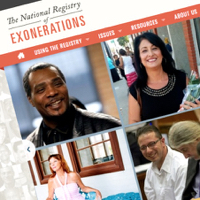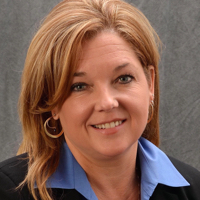Rascals case in brief
In the beginning, in 1989, more than 90 children at the Little Rascals Day Care Center in Edenton, North Carolina, accused a total of 20 adults with 429 instances of sexual abuse over a three-year period. It may have all begun with one parent’s complaint about punishment given her child.
Among the alleged perpetrators: the sheriff and mayor. But prosecutors would charge only Robin Byrum, Darlene Harris, Elizabeth “Betsy” Kelly, Robert “Bob” Kelly, Willard Scott Privott, Shelley Stone and Dawn Wilson – the Edenton 7.
Along with sodomy and beatings, allegations included a baby killed with a handgun, a child being hung upside down from a tree and being set on fire and countless other fantastic incidents involving spaceships, hot air balloons, pirate ships and trained sharks.
By the time prosecutors dropped the last charges in 1997, Little Rascals had become North Carolina’s longest and most costly criminal trial. Prosecutors kept defendants jailed in hopes at least one would turn against their supposed co-conspirators. Remarkably, none did. Another shameful record: Five defendants had to wait longer to face their accusers in court than anyone else in North Carolina history.
Between 1991 and 1997, Ofra Bikel produced three extraordinary episodes on the Little Rascals case for the PBS series “Frontline.” Although “Innocence Lost” did not deter prosecutors, it exposed their tactics and fostered nationwide skepticism and dismay.
With each passing year, the absurdity of the Little Rascals charges has become more obvious. But no admission of error has ever come from prosecutors, police, interviewers or parents. This site is devoted to the issues raised by this case.
On Facebook
Click for earlier Facebook posts archived on this site
Click to go to
Today’s random selection from the Little Rascals Day Care archives….
Click for earlier Facebook posts archived on this site
Click to go to
Today’s random selection from the Little Rascals Day Care archives….
‘We knew we had a secret’ (so we put Brenda on the case)
June 19, 2013
The Little Rascals parents insisted their children had “disclosed” mostly on their own, rather than a result of persistent interrogation. But this live interview, in the giddy moments after Bob Kelly’s convictions (April 22, 1992), suggests a different pattern:
CNN: How did you find out this happened? You were apparently the first parents to realize something was terribly wrong.
Mark Stever: Kyle, our son, told us in his own way, just different things, like ‘Mr. Bob doesn’t do it anymore. He does it to the other children.’
Audrey Stever: We knew he had a secret, and we knew it happened at nap time, but he couldn’t tell us what it was, and to escape talking about it he would say, ‘Oh, he doesn’t do it anymore, Mommy.’
CNN: And how did you finally bring it out of him exactly what he said had been happening?
Audrey Stever: Well, I approached a friend (Brenda Toppin) who was the investigating officer in the case… and things kind of went from there.
Another bumper harvest for National Registry of Exonerations
 March 20, 2017
March 20, 2017
“America saw another record year for the number of prisoners being exonerated, according to the National Registry of Exonerations, a project of University of California Irvine Newkirk Center for Science & Society, University of Michigan Law School, and Michigan State University College of Law.
“For 2016, 166 people were exonerated of crimes and released from prison, 52 of them for murder. Of all the exonerations, 70 cases involved official misconduct of some sort, and in 74 of the cases, convictions came from guilty pleas. And in 94 cases (also a record) it turned out that no actual crime occurred at all. These were mostly drug cases but also some child sex abuse cases. Most famously, the San Antonio Four, four women convicted in 1998 in a fabricated satanic child sex abuse ring scandal, were released in 2016 after it finally became clear the crimes never occurred.”
– From “Decades of exoneration stats show blacks more likely to wrongfully convicted” by Scott Shackford at reason.com (March 7)
Of the Edenton Seven, only Bob Kelly and Dawn Wilson, whose convictions were overturned, qualify for the National Registry of Exonerations. As spokesman Ted Koehler told me five years ago, “The Edenton case was a terrible witch hunt. Regretfully, though, [Betsy] Kelly’s and [Scott] Privott’s guilty pleas and the dropped charges against [Robin] Byrum, [Shelley] Stone, and [Darlene] Harris do not fit our definition of an exoneration….”
![]()
Prosecutors grudgingly loosen grip on Bob Kelly
May 22, 2012
Fifteen years ago today: Claiming they want to spare their child-witnesses from another round of testimony, prosecutors drop the last Little Rascals charges against remaining defendants Bob Kelly and Dawn Wilson.
Nancy Lamb is referring to the children when she says, “They know who I am and why I walked into their lives and stayed awhile. They remember.” Of course she also “stayed awhile,” as an uninvited guest from hell, in the lives of the Edenton Seven.
Kelly remains on the hook for an unrelated sexual abuse charge filed more than a year earlier.
Finally, on Sept. 23, 1999, that charge too will be dropped, and for the first time in a decade he isn’t living under the thumb of prosecutors.
When adversarial system doesn’t lead to justice

ncaj.com
Christine Mumma
May 26, 2016
“I would like to see more cooperation between prosecutors and defense attorneys in their efforts to achieve justice, particularly when there is a credible post-conviction claim of innocence. The overloaded, underfunded, and often inefficient adversarial system doesn’t have to be the approach when common sense and a shared interest in justice can more quickly address injustices for the convicted and victims of crime.
“Prosecutorial conviction integrity units around the country have made that clear, but the North Carolina Conference of District Attorneys seems to be encouraging less cooperation, not more.”
– Christine Mumma, quoted by the North Carolina Advocates for Justice
Mumma, of course, has famously endured the wrath of prosecutors whose autocracy she challenged.
You can like the North Carolina Conference of District Attorneys on Facebook.
Or not.
![]()











0 CommentsComment on Facebook